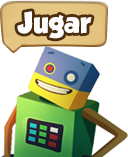
It is common these days for students to use calculators to solve complicated mathematical problems. This is true not only of students, but of most people regardless of age. People are using calculators and smart machines to deal with tricky problems. They have been profoundly shocked by the computational thinking of these machines, which is organized, accurate, efficient, and rapid. RoboGarden promotes the skills that will help kids convert any difficult task into one that’s accessible. Your kids will gain the computational thinking capabilities and skills that are required in the labor market.
Computational thinking is a computer science technique for solving complex or non-complex problems and ambiguous puzzles in a few seconds. Computational thinking involves many concepts that help make problem-solving effective and possible regardless of the problem’s difficulty. The concepts of computational thinking include:
You should never try to solve a complex problem immediately. First, divide it into small tasks that gradually increase in difficulty and begin with the solution to the simplest task.
RoboGarden applies this concept in the “Play Tic Tac Toe” adventure. Here, students build a game of Xs and Os using code blocks. It may seem complicated, but RoboGarden has broken the mission down into five small tasks that are each easy to accomplish:
After we broke the complicated problem down into small tasks, it became easier to see that there were many similarities between those tasks. Once one task is solved, you can reuse the same solution and solve the whole problem faster.
Pattern recognition is applied in our “Water path to the ornament” mission, where the player must recognize that the robot should move forward twice, then turn right and move forward twice more. The robot’s movement is repeated in a similar pattern and thus, the problem can be solved with fewer code blocks using loops. You can try it yourself! Just register and play the “The Christmas star ornament!” adventure or play the whole “Decorate the tree from bottom up” journey for free.
Reminder, overthinking is not going to make anything better! Instead you should give attention to the major part of the problem and ignore the unnecessary details until you get a single solution that works easily and quickly for multiple problems.
The “Green light” mission is the best application of the concept of abstraction because it has two different scenarios. The player should use only a single solution that is compatible with multiple scenarios. For more information, click here.
Finally, it’s the time to create solutions and instructions using a series of ordered steps to accomplish a specific task. These instructions will be used to solve repeated problems.
RoboGarden focuses on the concept of algorithms in “Getting the right satellite dish,” where you convert a flowchart into code blocks using nested conditions. This mission also shows how the code is executed step by step with our debug button. Here, you can learn exactly what you should do to solve this mission.
The technology world is just like keeping your balance while riding a bicycle: you must keep moving. You should promote computational thinking concepts in your kids' minds as early as possible. Just register for free with RoboGarden and don't miss out on this opportunity to improve your kids' futures and help them to keep up with technology.
